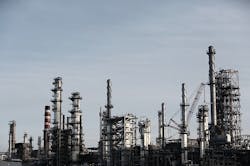Texas City Plans to Build Desalination Plants
ExxonMobil announced plans to build one of largest chemical plants north of Corpus Christi, Texas, in 2017.
According to The Texas Tribune, the project is expected to pump $50 million into the economy in its first six years of operation. However, it poses a challenge, the growing demand for water.
“Sooner or later, we’re getting to the point where we need more than what we have now,” said Jim Lee, an economics professor at Texas A&M University-Corpus Christi, to The Texas Tribune. Lee is advising the Port of Corpus Christi on a controversial proposal to build a seawater desalination plant.
The main way local and state officials appear to be looking to meet the growing industrial water demand in the Coastal Bend region. A range of public and private entities plan to construct seawater desalination plants.
According to the Tribune, officials and companies in the area say it’s an economic development issue. The desalination can provide the industry with a drought-proof water supply. The industry accounts for 40% of the water use in Corpus Christi, according to the Corpus Christi Regional Economic Development Corporation.
“It’s time to start making decisions,” said Sarah Tindall, vice president at the development corporation, to The Texas Tribune. “We work on the assumption there’s always going to be bigger projects down the line.”
However, some critics are concerned about the environmental risks and amount of energy the plants will require.
Jim Blackburn, an environment layer and Rice University professor, oppose the proposal because it would involve the discharge of all the salt and minerals removed from the Gulf Coast Water. According to The Texas Tribune, the water is located in the ship channel near Harbor Island on the northeast side of Corpus Christi Bay, which is zoned for industrial use.
“That is killer water,” Blackburn said to The Texas Tribune. “Fish cannot survive in that water and it’s just the worst place to put it.”
According to the Tribune, desalination is a common water treated method in Texas. More than 40 public water supply plants in the state but only for groundwater. Groundwater is cheaper to treat because it is not as salty.
